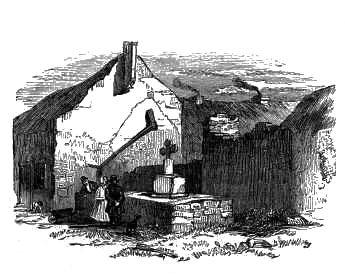Henry IV. and Ireland

Butts' Cross, Kilkenny
Henry IV.—A Viceroy's Difficulties—The Houses of York and Lancaster—The Colony almost Bankrupt—Literary Ladies in Ireland—A Congress of Literati—The Duke of York is made Viceroy—Affection of the Irish for him—Popularity of the Yorkists in Ireland—A Book given for a Ransom—Desolating Effects of the Wars of the Roses—Accession of Henry VII.—Insurrection of the Yorkists—Simnel is crowned in Dublin—Warbeck's Insurrection—Poyning's Parliament—Poyning's Law and its Effects—The Earl of Kildare accused of Treason—His Defence and Pardon—His Quickwitted Speeches—He is acquitted honorably—His Letter to the Gherardini—Ariosto.
[A.D. 1402—1509.]

SCION of royalty was again sent to administer law—we cannot say truthfully to administer justice—in Ireland. On the accession of Henry IV., his second son, Thomas, Duke of Lancaster, was made Viceroy, and landed at Bullock, near Dalkey, on Sunday, November 13, 1402. As the youth was but twelve years of age, a Council was appointed to assist him. Soon after his arrival, the said Council despatched a piteous document from "Le Naas," in which they represent themselves and their youthful ruler as on the very verge of starvation, in consequence of not having received remittances from England. In conclusion, they gently allude to the possibility—of course carefully deprecated—of "peril and disaster" befalling their lord; if further delay should be permitted. The King, however, was not in a position to tax his English subjects; and we find the prince himself writing to his royal father on the same matter, at the close of the year 1402. He mentions also that he had entertained the knights and squires with such cheer as could be procured under the circumstances, and adds: "I, by the advice of my Council, rode against the Irish, your enemies, and did my utmost to harass them."[2] Probably, had he shared the cheer with "the Irish his enemies," or even showed them some little kindness, he would not have been long placed in so unpleasant a position for want of supplies.
Notes
[2] Them.—Gilbert's Viceroys, p. 292.
